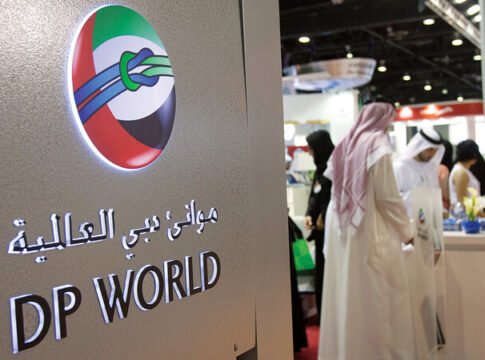The UAE’s logistics giant DP World signed a memorandum of understanding (MoU) with the Syrian government to develop and manage a multi-purpose terminal at the port of Tartous, with the deal valued at $800 million, according to Syria’s official news agency SANA.
The announcement came within hours of a historic U.S. policy reversal, as former President Donald Trump, during his regional economic tour, confirmed the removal of sanctions on Syria—paving the way for foreign investment after years of economic isolation under the Caesar Act.
The agreement between Syria and DP World will see the development of logistics infrastructure, free zones, and industrial parks in and around Tartous, a vital Mediterranean port once mired in wartime neglect and geopolitical risk.
Trump, speaking from Riyadh during the GCC summit, declared the lifting of sanctions was made “after constructive discussions” with Saudi Crown Prince Mohammed bin Salman, Turkish President Recep Tayyip Erdoğan, and Syrian President Ahmed Al-Sharaa.
This marks the first direct engagement between a U.S. leader and a Syrian head of state since the conflict began in 2011.
U.S. Secretary of State Marco Rubio clarified on Thursday that the administration intends to issue waivers under the Caesar Syria Civilian Protection Act, a law that for years had imposed sweeping secondary sanctions on entities doing business with Damascus.
According to Rubio, the waivers are aimed at “opening humanitarian and economic corridors while maintaining leverage against bad actors.” MEO has learned from a senior U.S. official that the Biden-Trump policy transition team had laid groundwork for this shift earlier in the year, but the UAE deal fast-tracked implementation.
DP World, a state-controlled entity under Dubai World, now becomes the first major Gulf investor to publicly re-enter the Syrian market since the onset of the civil war.
“This is more than a port deal—it’s a signal that the Gulf is reasserting itself in Syria’s reconstruction,” said Dr. Mona El-Husseiny, a Middle East political economist at the American University in Cairo. “The Tartous project will serve both commercial and geopolitical functions, especially for the UAE.”
Sources inside Syria’s Ministry of Transport confirmed to MEO that the Tartous terminal will include dual-use capabilities, supporting commercial trade and humanitarian logistics, with initial cargo operations projected to begin in late 2026.
A DP World spokesperson, speaking exclusively to MEO, said: “We see this as the beginning of long-term engagement in Syria’s transport and trade sectors. The goal is to anchor the region into a stabilized economic framework.”
The deal underscores Syria’s urgent need for foreign capital. The country’s GDP has contracted by more than 60% since 2011, and basic infrastructure remains devastated.
Trump’s move is also being viewed as part of a larger realignment. During the same Middle East tour, he sealed over $2 trillion in investment agreements across the Gulf, including AI and aviation megadeals in Saudi Arabia, Qatar, and the UAE.
“Trump is reshaping diplomacy into transactional deal-making,” said Hussein Mostafa, senior analyst at the Cairo Center for Strategic Dialogue. “In this model, economic normalization becomes a bridge to political rehabilitation, even for pariah states.”
The removal of sanctions is expected to unlock stalled aid and infrastructure projects across Syria. Major logistics firms from Turkey and Jordan are reportedly eyeing follow-up deals involving the Latakia port and overland transport corridors that connect Syria with Iraq and the Levant.


